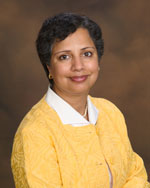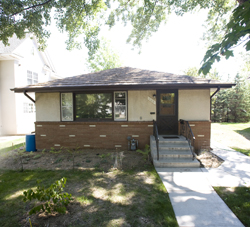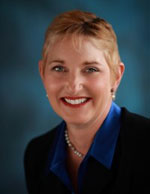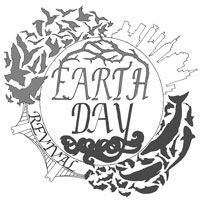EnviroThursday Spring 2014
Contact
Environmental StudiesOlin-Rice Science Center, Room 249 651-696-6274
esson@macalester.edu
instagram twitter
Presentations take place at 12 noon, Olin-Rice Room 250
February 6, 2014

2014 Environmental Studies Distinguished Speaker
“The Genius of Earth Day”
Speaker: Adam Rome, Unidel Helen Gouldner Chair for the Environment, University of Delaware
The first Earth Day had a power and freshness that are hard to imagine now. Earth Day 1970 inspired the first green generation. Earth Day 1970 also helped to build a lasting eco-infrastructure. What made the event so powerful? The story of the first Earth Day offers important lessons for environmentalists today.
Adam Rome holds the Unidel Helen Gouldner Chair for the Environment at the University of Delaware, where he teaches courses in environmental history and environmental non-fiction. He is the author of two books: The Genius of Earth Day: How a 1970 Teach-In Unexpectedly Made the First Green Generation (2013) and The Bulldozer in the Countryside: Suburban Sprawl and the Rise of American Environmentalism (2001), which won the Organization of American Historians’ Frederick Jackson Turner award. From 2002 through 2005, he edited the journal Environmental History.
February 13, 2014 – No EnviroThursday
Valentine Party for ES Majors and Minors
Olin-Rice 205
February 20, 2014

“Solar for Everyone”
Speaker: Ken Bradley, CEO, Minnesota Community Solar
Minnesota Community Solar is the first turnkey, sustainable model for community solar. They bring various community partners together to secure project sites, subscribers/electricity consumers and develop community solar that produces clean local energy and reducing global warming emissions. They use Minnesota labor, manufactured products and financing, whenever possible. All you need is an electricity bill and the desire to be the change you wish to see in the world.
Ken Bradley has worked as director for several non-profit organizations leading various efforts to increase investments in renewable energy, energy-efficiency, and reduce global warming pollution. Ken serves as CEO of Minnesota Community Solar (mncommunitysolar.com) helping to lead business planning and development. He is also on the board of trustees for Minnesota Environmental Partnership and Minneapolis Community and Technical College.
February 27, 2014

“Building Sustainable, Healthy and Resilient Cities Globally: Translating Research to Action”
Speaker: Dr. Anu Ramaswami, Humphrey Institute at the University of MN
Cities would not function without infrastructures that provide water, energy, food, shelter, waste management and mobility services to more than half the world’s people living in them today.
How do people, infrastructures and the natural system interact with each other across spatial scale to shape multiple sustainability outcomes for cities – including environmental, economic, risk/resiliency and public health outcomes? How can we better design our urban infrastructure systems to achieve these multiple sustainability outcomes? Who governs the design and diffusion of these more sustainable infrastructure systems in society – and what motivates them to do so (or not)?
These important questions will be explored using a novel social-ecological- infrastructural systems (SEIS) framework for developing sustainable, healthy and climate-resilient cities. The framework will be applied to describe recent efforts to measure and mitigate greenhouse gas (GHG) emissions associated with cities, using a portfolio of interventions including: infrastructure design/technology interventions, as well as behavior change and policy interventions.
Professor Anu Ramaswami is the Charles M. Denny Jr. Chair Professor of Science, Technology and Public Policy at the Humphrey School of Public Affairs, University of Minnesota. Dr. Ramaswami has developed novel inter-disciplinary education, research and outreach programs at the intersection of science, technology and policy, linking students with real-world sustainable development projects. Dr. Ramaswami received her BS in Chemical Engineering from the Indian Institute of Technology – Madras, India, and her MS and PhD in Civil & Environmental Engineering from Carnegie Mellon University, Pittsburgh, USA. She serves as the Chair of the newly founded Sustainable Urban Systems section at the International Society of Industrial Ecology, and represents the United States in various international urban sustainability networks.
March 6, 2014

“Macalester’s EcoHouse”
Speakers: EcoHouse Residents Analuna Brambila, Molly Sowash, Julia Gay, and Carly Avezzano
What is the EcoHouse? Find out about our own Eco-Living/Learning Laboratory. EcoHouse students will talk about the house and their projects. This is an excellent opportunity for EcoHouse applicants to learn more about living in the house from current residents.
March 13, 2014
“The Indigenous Roots of Sustainable Forestry in the United States and an Environmental History of the Menominee Tribe of Wisconsin”
Speaker: Mike Dockry, Research Natural Resource Specialist, USDA Forest Service
For many indigenous communities, forests have powerful cultural, historical, and economic meanings. In this talk, Mike explores the meanings of forest management (harvesting trees for timber) on the Menominee Reservation in
Wisconsin. He addresses three fundamental questions: How have Menominee people and non-Menominee people understood their relationship with forests and forest management through time? How and why has the Menominee forest changed through time? How does history and culture shape definitions, practices, and understandings of sustainability?
Mike Dockry is an enrolled member of the Citizen Potawatomi Nation and was born and raised in Green Bay, Wisconsin. Mike is currently a research scientist with the USDA Forest Service’s Northern Research Station in Saint Paul, MN, and is building a research program that integrates social and ecological sciences. From 2005-2012 he was the USDA Forest Service’s Liaison to the College of Menominee in Keshena, WI, where he facilitated research, education, and outreach around sustainable forest products and sustainable forest management. Mike earned a PhD in the Forest and Wildlife Ecology Department at the University of Wisconsin Madison. His research interests include understanding social aspects of forest management, sustainability, indigenous community forestry, strategic foresight, and environmental history. Mike also has a BS in Forest Science from the University Wisconsin Madison and an MS in Natural Resources from the Pennsylvania State University.
March 20, 2014
No EnviroThursday – Spring Break
March 27, 2014
No EnviroThursday
April 3, 2014

“Fanning the Flame: The State of Natural Gas and How Bio/Renewable Natural Gas Fits In”
Speaker: Diane Saber ’78, Ph.D., President of REEthink
The natural gas industry has experienced many changes over the past 20 years, especially from the environmental perspective. This presentation will focus on changes within the energy sector which have influenced the natural gas industry, both from production and environmental aspects. Shale gas reserves in tandem with renewable portfolio standards pose interesting challenges. Microbiology has been integral to both the problems and solutions associated with the industry. This talk will focus on the state of the natural gas industry, advanced research in areas of interest to this segment of the energy market, the status of renewable natural gas as an energy product for inclusion in the pipeline network and next generation environmental problems.
Dr. Saber has over 30 years of experience in biological hazardous waste treatment and renewable natural gas. She is currently the President of REEthink, Inc., an integrated consulting and collaborative research company devoted to renewable energy and environmental projects for the natural gas industry. REEthink has been primarily focused on issues associated with the shale gas industry, renewable natural gas and natural gas quality issues.
Prior to REEthink, her past 16 years were devoted to environmental problems associated with the natural gas industry as Director of the Environmental Science and Forensic Chemistry Center at the Gas Technology Institute (GTI), Des Plaines, IL, leading research in the areas of gas quality, biomass conversion to high-quality biomethane, greenhouse gas abatement, forensic chemistry techniques, biotechnology applications environmental restoration/wastewater treatment, biorefining, biological hazardous waste treatment and advanced techniques pertaining to microbial-induced corrosion.
She also previously served as Biotechnology Remediation Director for large construction/engineering firms (Fluor Daniel and Ebasco) and has been a Senior Project Manager and Technical Lead for multi-million dollar Superfund Remediation Projects.
April 10, 2014 – 7 p.m. in Neill Hall 226
“Open Road” Film Screening
with documentary filmmaker Alain LeTourneau
“Open Road” is a documentary about the urban space that has been built for the movement and recording of private motor vehicles. The film gives an overview of the visual-aural experience of these roads, their construction and maintenance as well as the widespread culture of the use of motor vehicles. Not your typical road movie, Alain LeTourneau’s “Open Road” nevertheless, is just that. Shot on 16mm, this portrait of urban space surveys the ultimate expression of American culture. The film considers modern roads as places that hold a specific function and a specific character in the urban American culture. Using excerpts from early explorer John Charles Fremont’s The Exploring Expedition to the Rocky Mountains, the film uses this text as an echo in time, commenting on and drawing clues as to just how far American expansionism has taken itself in its most powerful physical expression, the Open Road.
Sponsored by Environmental Studies, Media and Cultural Studies, and History Departments.
April 17, 2014
Environmental Studies Honors Thesis Presentation
“Geochemical Markers of Changes in the Ocean Silicon Cycle During Heinrich Events”
Speaker: Mike Galgay ’14
Earth’s climate has been dominated by the glacial-interglacial cycle for the last million years, but smaller scale, rapid climate changes have also been found in the record. These events have been linked to significant ocean circulation changes that dramatically alter the way heat and energy is distributed around the planet. Heinrich Events are one such type of event, caused by catastrophic collapse of Northern Hemisphere ice sheets, and six have occurred in the last 60,000 years. The most recent Heinrich Event seems to even have triggered the deglaciation which started the interglacial period we live in today. This presentation presents evidence of ocean circulation and nutrient distribution changes from sediment cores that span the six most recent Heinrich Events. This work is an attempt to understand the mechanisms responsible for the relationship between ocean nutrient cycles and climate change, and the sequence of events relating Heinrich Events and glacial terminations. With our results, we hope to begin to distinguish between multiple hypotheses proposed to explain these connections.
April 24, 2014 – Olin-Rice 241

“Earth Day Revival: An Experiment in Reinvigorating the Environmental Movement”
Speakers: Environmental Studies Senior Seminar Students
During the first Earth Day in 1970, millions of people participated in thousands of events throughout the United States. Landmark environmental laws and regulations were pushed through following this momentous, grassroots movement. Clearly, modern expectations of Earth Day don’t live up with history.
This year’s Environmental Studies Senior Seminar is tasked with bringing new life to Earth Day, with the ultimate goal of exploring how to revitalize the environmental movement at large. Students have planned a series of Earth Week events to this aim. This EnviroThursday, the Senior Seminar will discuss their capstone experience, the importance of Earth Day, and how to use this day as an inspiration for the revitalization of the environmental movement going forward.